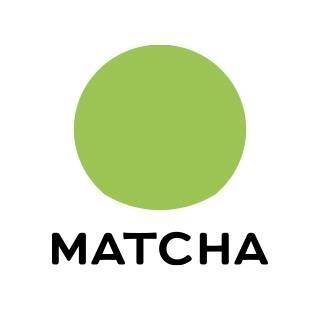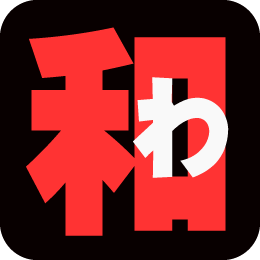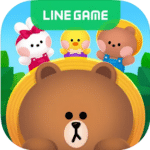
Japanese Reading Practice: 19 Fun Resources for Beginners
When learning how to read Japanese content, it’s important to choose a topic that interests you.
You may also want to try out a variety of materials to expose yourself to different vocabulary.
The good news is that Japanese material for beginners is readily available for those who want to practice reading.
So let’s go ahead and dive into the wonderful world of Japanese reading materials!
Contents
- Japanese Reading Practice Materials Straight from the Headlines
- Japanese Reading Practice Materials for Comic Fans
- Japanese Reading Practice with Children’s Stories
- Reading Practice Materials to Learn About Japanese Culture
- Japanese Reading Practice with Gaming Apps
- Bonus Japanese Reading Practice Materials to Test Your Language Skills
- Why Reading Practice is Essential for Learning Japanese
- And One More Thing...
Download: This blog post is available as a convenient and portable PDF that you can take anywhere. Click here to get a copy. (Download)
Japanese Reading Practice Materials Straight from the Headlines
Reading the news in Japanese is a great way to learn about events in Japan as well as all over the world. Many of the news stories from Japan contain hometown stories to learn about everyday life in the country.
NHK News Web Easy
News Web Easy is a free news resource from Japan’s public broadcasting organization, NHK. The content is presented in short paragraphs and in simple sentences. All of the kanji includes furigana (hiragana placed above kanji) for additional help.
Along with current news articles, you can listen to the audio of the news being read out loud for additional listening practice. If audio alone is too difficult, there are also subtitled videos available.
News in Slow Japanese
News in Slow Japanese contains a variety of current news and general information about Japan. Each post is made up of a few short paragraphs.
If a sentence or phrase doesn’t make sense, you can hover your mouse over the text to access more information. The articles are also available in romaji and plain text with no additional aids.
Each post includes a vocabulary list and audio of slowly spoken Japanese for extra study practice.
In addition to reading and listening to the news in slow Japanese, there’s a supplementary podcast that plays a faster audio version of the story.
Japanese Reading Practice Materials for Comic Fans
If you’re a fan of anime, you may be interested in reading the original source material. Many popular shows start off as manga series that have become so loved that they’re adapted for the big screen.
Reading manga will help you learn grammar, and in children’s stories, kanji is usually accompanied by furigana.
“Dragon Ball” by Akira Toriyama
 “Dragon Ball” is a long-running manga series from Akira Toriyama. The protagonist, Goku, begins as a young, naive child and grows into a powerful man with an overwhelming desire to protect his home, Earth.
“Dragon Ball” is a long-running manga series from Akira Toriyama. The protagonist, Goku, begins as a young, naive child and grows into a powerful man with an overwhelming desire to protect his home, Earth.
The “Dragon Ball” series is excellent for beginners because it offers an intriguing story plus a simplistic writing style with clean art that’s easy to follow. In the early series, Goku speaks in basic terms as a child learning about life on Earth. All of the kanji includes furigana.
“Sailor Moon” by Naoko Takeuchi
 “Sailor Moon” is a magical tale about a group of teenage girls by Naoko Takeuchi. Usagi Tsukino starts as a childish schoolgirl, but as she learns more about her past, she grows into a powerful warrior and fights for the fate of the galaxy.
“Sailor Moon” is a magical tale about a group of teenage girls by Naoko Takeuchi. Usagi Tsukino starts as a childish schoolgirl, but as she learns more about her past, she grows into a powerful warrior and fights for the fate of the galaxy.
The story is already complete, and readers can easily buy the entire series. There are a variety of characters, which will help you learn different dialects and slang. Since the characters are younger, the speech is more straightforward for beginners and includes furigana.
“Doraemon” by Fujiko Fujio
 “Doraemon” by Fujiko Fujio features a cat-like robot from the future who has traveled to the present. Doraemon’s mission is to help Nobita, a young, clumsy elementary school student. Doraemon uses his futuristic technology to assist Nobita in his everyday life, but there are usually some amusing consequences.
“Doraemon” by Fujiko Fujio features a cat-like robot from the future who has traveled to the present. Doraemon’s mission is to help Nobita, a young, clumsy elementary school student. Doraemon uses his futuristic technology to assist Nobita in his everyday life, but there are usually some amusing consequences.
“Doraemon” has become so popular that the principal character can be seen almost anywhere in Japan. The manga has run for years and has featured stories with moral lessons appropriate for everyone.
It was written for young children around Nobita’s age, making it easier for beginner Japanese readers to understand. The speech uses simple sentence patterns and includes furigana.
“Shirokuma Cafe” by Aloha Higa
 “Shirokuma Cafe” by Aloha Higa has animals take the lead. In this manga series, animals and humans coexist at a local cafe.
“Shirokuma Cafe” by Aloha Higa has animals take the lead. In this manga series, animals and humans coexist at a local cafe.
The manga contains simple sentences, but there’s plenty to learn. Throughout the series, there are cultural lessons about different kinds of drinks, sweet treats and animals that appear at the cafe.
All of the typed speech includes furigana, but the additional text, such as handwritten thoughts by the artist, lacks reading aids. Beginners can try focusing on only reading speech at first and then tackling the more advanced content later on.
“Yotsubato&!” by Kiyohiko Azuma
 “Yotsubato&!” is a manga series by Kiyohiko Azuma and is the only entry on this list that wasn’t adapted into an anime series. The only way to experience the joy of curious Yotsuba Koiwai is through a manga series. Each story focuses on “Yotsuba and,” or Yotsuba and her new experiences.
“Yotsubato&!” is a manga series by Kiyohiko Azuma and is the only entry on this list that wasn’t adapted into an anime series. The only way to experience the joy of curious Yotsuba Koiwai is through a manga series. Each story focuses on “Yotsuba and,” or Yotsuba and her new experiences.
“Yotsubato&!” is excellent for beginner to intermediate readers. While five-year-old Yotsuba speaks like a child, her adoptive father and his friends may use some words that are unfamiliar for readers just starting out. All kanji is accompanied by furigana.
Japanese Reading Practice with Children’s Stories
Reading children’s stories is a great way to practice Japanese. They’re usually stories you may already be familiar with, such as fables or fairy tales.
These stories are typically short and told with simple sentence structures. Similar to learning the stories in English, they range from simple stories to more complicated tales with advanced grammar and kanji.
White Rabbit Press
One of the best places to find graded readers, White Rabbit Press offers Japanese readers in a variety of levels.
The simplest story for Level 0 readers is “The Ant and the Grasshopper,” while the easiest option for Level 1 readers is “The Birds, the Beasts and the Bat,” a retelling of an Aesop fable. Another Level 1 story featured on the site is “The Three Little Pigs,” which most people will remember from their childhoods.
These stories are directly accessible in the White Rabbit Press Japanese Graded Readers app, but a short summary of each story and a learning level is listed on the website. The app is available for iOS and Android devices.
These Japanese graded readers offer multiple benefits. The text is easy to read and the sentences are short, with limited grammar and vocabulary. All of the kanji is accompanied by furigana, but you’ll have learned most of them during your early kanji studies.
Along with reading the text, there are corresponding images and audio, which are all high-quality. The audio is recorded by a professional voice cast.
Nihon no Mukashibanashi
Japanese folklore not only provides stories rich with history but also helps you learn the language. The stories are often a single paragraph and use simple sentences.
Nihon no Mukashibanashi, a Japanese folktale website run by the International Digital EHON Association, contains around 30 stories that Japanese children grow up reading.
You can read the stories by clicking “Back” and “Next” beside each picture to navigate through the pages.
One challenge of using the website is that the text doesn’t include furigana for the kanji. However, most of the kanji ranges from beginner to intermediate level. If a kanji character leaves you completely stumped, you can copy and paste it into an online dictionary like Jisho for the definition.
Some of the simpler stories you can start out with include:
- “Urashima Taro” — A young man who has an underwater adventure.
- “Sun and Moon” — A telling of the origins of the sun and moon.
Bom Bom Academy YouTube channel
Who said that all your reading practice had to be done with books? There are YouTube channels available with stories for children in simple Japanese that contain subtitles you can read.
For example, the Bom Bom Academy YouTube channel contains a variety of content specially made for children. Their fairy tale videos are animated and include Japanese subtitles.
If the audio distracts from reading the subtitles, you can simply mute the video. Alternatively, the Japanese audio can double as listening practice.
Begin your Japanese reading practice with the following classic stories:
Reading Practice Materials to Learn About Japanese Culture
Interested in learning more about how the people of Japan live instead of just watching whatever is on TV? There are great resources for beginners to read about Japanese culture and discover exciting facts about everyday life in this vibrant country.
Matcha
Matcha, a web magazine, is similar to NHK News Easy, as it contains posts that are easy to read with simple grammar.
The content on this site focuses on different cultural aspects of Japanese life, such as current trends. All of the kanji includes furigana.
The posts are longer than what you’d find on other sites, but are broken up into sections for easier reading.
Wa Tanoshii
Wa Tanoshii, or Fun, is another online magazine that covers a variety of topics including food, animals and festivals. The articles are written by various users eager to share their personal experiences in Japan.
The articles are all written in simple Japanese. The content is also sortable by N5-N1 levels, and the article titles themselves have the N-level included. Hover your mouse over any of the underlined phrases, and you’ll learn the definition of the word and get access to grammar explanations.
Nippon Talk
Nippon Talk is a site that covers more general topics about life in Japan. Their posts tackle subjects like parenting, doing laundry and carrying out everyday tasks, but the content may interest those who want to know more about the Japanese lifestyle.
Each article is written in short paragraphs with slightly longer sentences than what you’ll find in posts from the other sites on our list.
All of the kanji includes furigana, but the English translation is placed directly beneath each paragraph. While reading the content in Japanese, challenge yourself to not sneak a peek at the English translation until you’ve fully read the passage.
Japanese Reading Practice with Gaming Apps
Video games can be used as both a form of entertainment and learning, and there’s science to back it up.
Most mobile games include different language options you can use to your advantage. While many may be too advanced for most users, below is a list of some fun games that can double as reading practice for beginners.
Neko Atsume: Kitty Collector
Neko Atsume: Kitty Collector by Hit-Point is a cat collecting game available for both iOS and Android devices. There’s not much gameplay, but the animated cats are adorable to watch. Set out different types of food or toys, and cats will appear the next time you start the app.
The game has two language settings: Japanese and English. There’s minimal Japanese in the app, which will help you to not become overwhelmed in your daily learning routine.
Also, the cats’ names are written in hiragana and katakana, which can help you learn to read foreign words spelled using katakana characters.
Animal Crossing: Pocket Camp
Animal Crossing: Pocket Camp is the first mobile game for the long-running Animal Crossing series by Nintendo. As the leader of the camp, you’re in charge of helping animals and decorating the campsite.
Fans of the video game version of Animal Crossing can experience a slightly different game, as it varies from its North American counterpart. For example, some of the animals have different names.
The Japanese is written in simple sentences, but the kanji doesn’t include furigana. This game would be best for those looking for slightly more challenging content, but it’s still simple enough for beginner or younger players as well.
LINE Brown Farm
LINE isn’t just one of the most popular mobile messaging apps in Japan. The company has also released several games related to their famous characters.
LINE Brown Farm is a mobile game starring one of their most popular characters, Brown, a bear. Brown has to rebuild a farm and make it successful by planting various vegetables and raising animals.
Similar to the previous game, the kanji doesn’t include furigana, but it’s simple enough for at least N5 learners. That means you’ll need some experience with grammar to make sense of the dialogue.
LINE Brown Farm also broadens your vocabulary with a variety of vegetable and animal names.
Bonus Japanese Reading Practice Materials to Test Your Language Skills
Are you ready to level up your Japanese reading practice with more challenging content? Here are some more materials for you to explore and decide if you’re ready to move on to intermediate reading resources or if you need more time learning the basics.
Video Games for Younger Players
If you’re not interested in playing mobile games, try practicing Japanese with video games on other platforms. Nintendo offers a vast library of games, and many of them support multiple languages.
A great place to start is with the Nintendo Switch. Games for younger players have simpler sentences that are easier for beginners to understand.
Though not all the kanji in the games include furigana, they range from beginner to intermediate level. Don’t be afraid to stop playing to look up the meaning of a confusing kanji. You’ll learn more about the word within the context of the game.
A few video game titles to try out include:
- “Pokémon: Let’s Go Pikachu!” — A side game to the main series that also includes elements from the animated series.
- “Luigi’s Mansion 3” — A ghost hunting game starring Mario’s brother.
- “The Legend of Zelda: Link’s Awakening” — A game starring series protagonist Link and his adventures on Koholint Island.
Anime with Japanese Subtitles
If you’re a fan of anime, you can try watching it with subtitles to get in extra reading practice. Of course, instead of using English subtitles, try using Japanese subtitles. That way, you can practice your reading skills and listening comprehension.
Start with anime targeted toward younger viewers like “Crayon Shin-chan,” a comedy show about a mischievous young boy and his family. If you find the humor in “Crayon Shin-chan” (which can be inappropriate at times) isn’t what you’re looking for, “Chi’s Sweet Home” is a child-friendly tale about an adorable stray kitten who learns how to adapt to indoor life after being adopted by a family.
You can also learn with anime clips on the FluentU program, which teaches Japanese through authentic videos that also include clips from movies and series, funny commercials, news segments and other media that native speakers watch.
With FluentU, you can also create multimedia flashcards for any new words you encounter as you watch. An app like this can be helpful for anyone who wants to learn Japanese through videos.
NHK for School
NHK offers a variety of resources for all levels of Japanese language learners. Another helpful resource for beginners is NHK for School, which contains TV programs and other short videos. Each video is broken up into different parts with a transcript.
Unlike NHK Easy News, this content doesn’t contain furigana, but the kanji is N5 level, making it easy enough for most beginners. Their videos also double as listening practice.
I suggest starting with the folklore tales such as “Momotaro” or the elementary-level videos under TV Programs.
Why Reading Practice is Essential for Learning Japanese
Reading is an integral part of learning any language. Even if your only goal is to speak Japanese, there will come a time when you’ll need to read something in your target language.
Practicing reading Japanese materials doesn’t have to be a chore. There’s a variety of content to choose from, no matter what your interests are. Reading also has significant benefits for your health, like reducing stress and expanding your vocabulary.
Plus, seeing those hard-to-learn kanji in context will have you remembering them faster.
What better way to double up your Japanese language learning than to practice reading daily? With so many materials to choose from, you can also learn about Japanese history, culture and customs while studying the language.
Learning the Japanese language is challenging, but it’s important not to give up.
The more content you challenge yourself to read, the more you’ll learn. Make the process easier by choosing the Japanese reading materials that interest you the most.
As you continue your language learning journey, you’ll end up reading more difficult content that you didn’t even know was possible before.
Download: This blog post is available as a convenient and portable PDF that you can take anywhere. Click here to get a copy. (Download)
And One More Thing...
If you love learning Japanese with authentic materials, then I should also tell you more about FluentU.
FluentU naturally and gradually eases you into learning Japanese language and culture. You'll learn real Japanese as it's spoken in real life.
FluentU has a broad range of contemporary videos as you'll see below:

FluentU makes these native Japanese videos approachable through interactive transcripts. Tap on any word to look it up instantly.

All definitions have multiple examples, and they're written for Japanese learners like you. Tap to add words you'd like to review to a vocab list.

And FluentU has a learn mode which turns every video into a language learning lesson. You can always swipe left or right to see more examples.

The best part? FluentU keeps track of your vocabulary, and gives you extra practice with difficult words. It'll even remind you when it’s time to review what you’ve learned. You'll have a 100% personalized experience.
Start using the FluentU website on your computer or tablet or, better yet, download the FluentU app from the iTunes or Google Play store. Click here to take advantage of our current sale! (Expires at the end of this month.)












